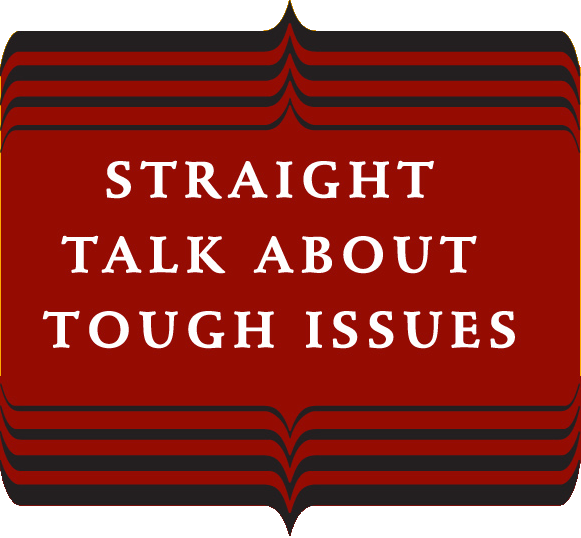Advice for executive women often sounds contradictory: State your position, but not too strongly… Be decisive, but be sure to include others… It’s okay to be ambitious, but don’t let it show… Do this, but not too much… Just be perfect, all right? I call this The Executive Woman’s Dilemma—a female manager must demonstrate strong leadership characteristics to be successful, but those behaviors are typically seen in men, and so are often negatively perceived in a woman. Gender-bending may be confusing to our co-workers, male and female, and provoke a backlash. Hence the daunting advice of “do a bit of this, but not too much.”
Women frequently complain to me about this double standard. “My manager told me I needed to speak up in meetings, but then he told me I’d better tone it down.” “If a man had said what I said, he wouldn’t have been criticized for it.” “I asked for a raise, and they said I was being too aggressive.” Other confused women say to me, “But I don’t want to act like a man,” and I say back, “And you shouldn’t. That would be counter-productive.”
If we think of stereotypically male and female behaviors as each forming a circle, there is an overlapping area of behaviors that are socially acceptable for both men and women. If you look at the intersection of those two circles (and hold your mouth right), it resembles the eye of a needle. In my observation, successful women in the workplace are usually using behaviors that stay mostly within the needle; they are not overly feminine, nor do they demonstrate overtly masculine behaviors. It’s not easy to thread the needle. Many women I knew got so fed up with this catch-22 that they quit work altogether. But if we like our jobs and don’t want to quit, what can we do?
First, let’s listen to the criticisms of my female colleagues made by my male co-workers: “She’s too stiff. She doesn’t hang out with us. She has a chip on her shoulder. She’s too emotional.” And the kicker: “She lacks self-confidence.” Gee, I can’t imagine why! But these are important insights. Some women are so uncomfortable at work that they treat the men as the enemy and are unfriendly, even hostile. They are on the watch for slights or put-downs and react unpleasantly to jokes and banter. They hide behind formal emails and only interact with their colleagues in meetings. Heaven knows, they’re never going to have a chuckle or go out for a pint.
Now, let’s look at some alternatives. I recommend building informal collegial relationships with your male colleagues. You may be the first woman they’ve had that kind of relationship with, so proceed thoughtfully. It takes time and effort, but it is usually possible and almost always worthwhile. I suggest spending time with them: drop by their offices, call them on the phone, engage in information exchange. You may have to make the first move, but if you keep your interactions professional, your colleagues will not misinterpret your friendliness as a suggestion for a date.
Try to become part of informal conversations in the hallway, before and after meetings, or at lunch. You may need to learn a bit about football or politics, but you don’t have to become an expert to participate. Observe your specific colleagues and look for positive ways to interact with them. Then you won’t feel like an alien, and your co-workers won’t treat you like one. Consider participating in their activities outside of work too, but be careful to keep your behavior businesslike (e.g., you’re not obliged to close down the pub!).
As the men get to know you, your relationship can become more easy-going, natural and genuine. You will be more confident, and your male managers will feel more comfortable providing useful feedback that will help you improve. Work becomes more rewarding, not to mention more fun.
Being part of the network also positions you for information, potential assignments, and sponsorships. We hear men say that they don’t promote women or put them on boards, simply because they don’t know them as well as they do their male colleagues. Make sure that your colleagues know all about you! There’s a tangible payoff in terms of rewards and compensation, but importantly, it also builds trust.
Relationships built on trust are sturdy and can endure a blow or two. Trust provides flexibility because the guys will give you the benefit of the doubt if your behavior surprises them. That can be extraordinarily beneficial when you have to use behaviors that range significantly outside the narrow eye of the needle. Effectively, you can enlarge the eye of the needle because how you behave is just who you are, and who you are is someone they like. It may turn out that with practice and focus, threading the needle isn’t that difficult after all.
Copyright 2012 Jennifer K. Crittenden
Published in Managing Partner, 2012
Sign up for an individualized program to enhance your own Presence:
Creating Exceptional Presence
The program includes self-assessments of areas related to authority, credibility, authenticity, trust, composure, and confidence. Tactical lessons include voice, body language, social and language skills. Context-specific behaviors are identified, studied, evaluated, and practiced. Individual coaching is provided in ten 90-minute video-Skype sessions, followed by readings and exercises, including audio and video analysis of self and others. Participants will receive Crittenden’s new book, You, Not I: Exceptional Presence through the Eyes of Other (Whistling Rabbit Press, 2014) along with her exclusive handbook, Creating Exceptional Presence, addressing such topics as behaviors versus perceptions, derailers, stage fright, and pre-performance rituals. Program time totals 56 hours, typically over four to five months. The program cost is $3000. More information here.





 Ten 90-minute individualized sessions. Private and confidential.
Ten 90-minute individualized sessions. Private and confidential.


1 Comment